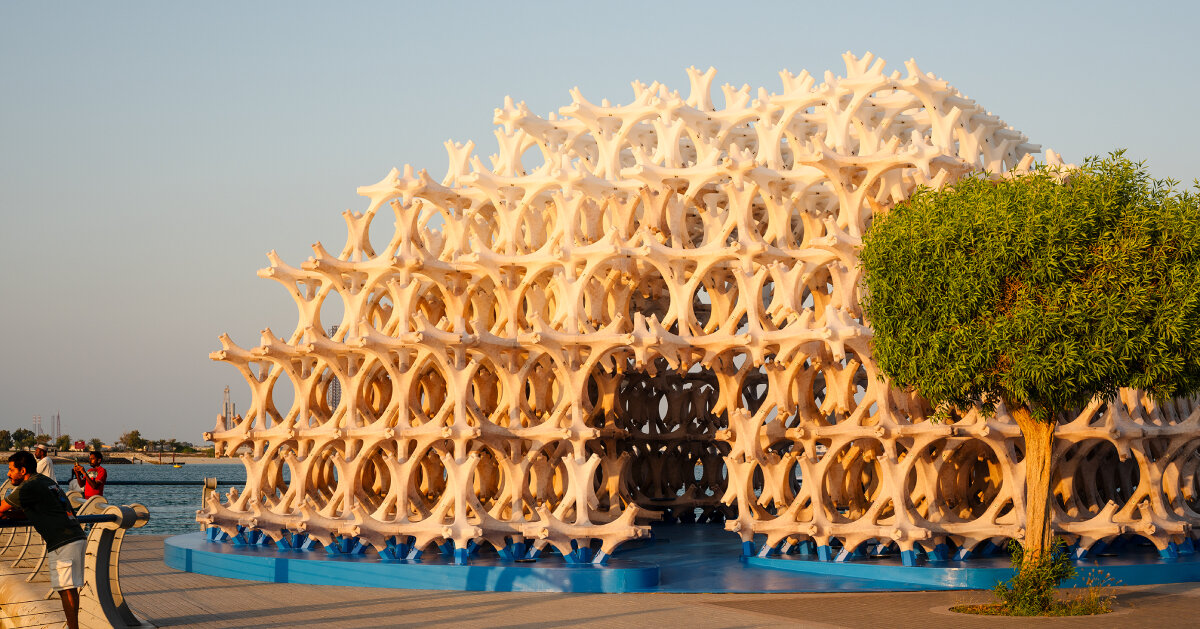Designboom
4d
211

Image Credit: Designboom
wael al awar on reclaiming brine for a new sustainable vernacular at public art abu dhabi
- Wael Al Awar presents Barzakh at Public Art Abu Dhabi Biennial, a domed pavilion that creates a moment of rest along the corniche by reclaiming industrial waste to create a new vernacular.
- Al Awar's approach to architecture explores ways of embracing local resources and creating a sustainable way of building in contrast to the predominant linear systems of construction. The Barzakh is an agent in its context, both as an homage to and an advocate of the vernacular architecture.
- Reject brine is used as a natural binder while coral is used as the core material of the domed pavilion modules. Palm fibers are used as reinforcement to support each module and sustain up to 10 people at a time.
- The Barzakh also features an interactive light that responds to wind, the movement, and intensity of which dictate the light's color, direction, and brightness, making environmental elements visible and allowing people to understand natural phenomena.
- While the prototype is non-habitable, it makes a statement to stimulate discussion and encourage us to rethink passive cooling strategies and local architectural traditions instead of standardized designs.
- By using this micro-ecosystem, biodiversity can thrive while reducing the impact of construction on the environment. The project offers the flexibility to be disassembled or reassembled into various forms and distributed around the city as the need arises.
- Al Awar's practice is focused on using industrial waste materials to build more sustainably. The construction industry accounts for 40% of the climate crisis, with Portland cement being the biggest contributor.
- The Barzakh's materiality comprises coral, recycled HDPE waste, and palm fiber modules connected by pins made from recycled aluminum cans. The structure derives stability from its self-supporting domed shape.
- The core material of the modules is coral, which allows walls to breathe and creates naturally comfortable environments passively without relying on mechanical cooling, reducing environmental costs.
- Al Awar uses waste that is part of the local context, particularly in arid regions where desalinated water is abundant. reject brine renders Barzakh once again an homage to and an agent in its context by turning industrial byproducts into assets.
Read Full Article
12 Likes
For uninterrupted reading, download the app